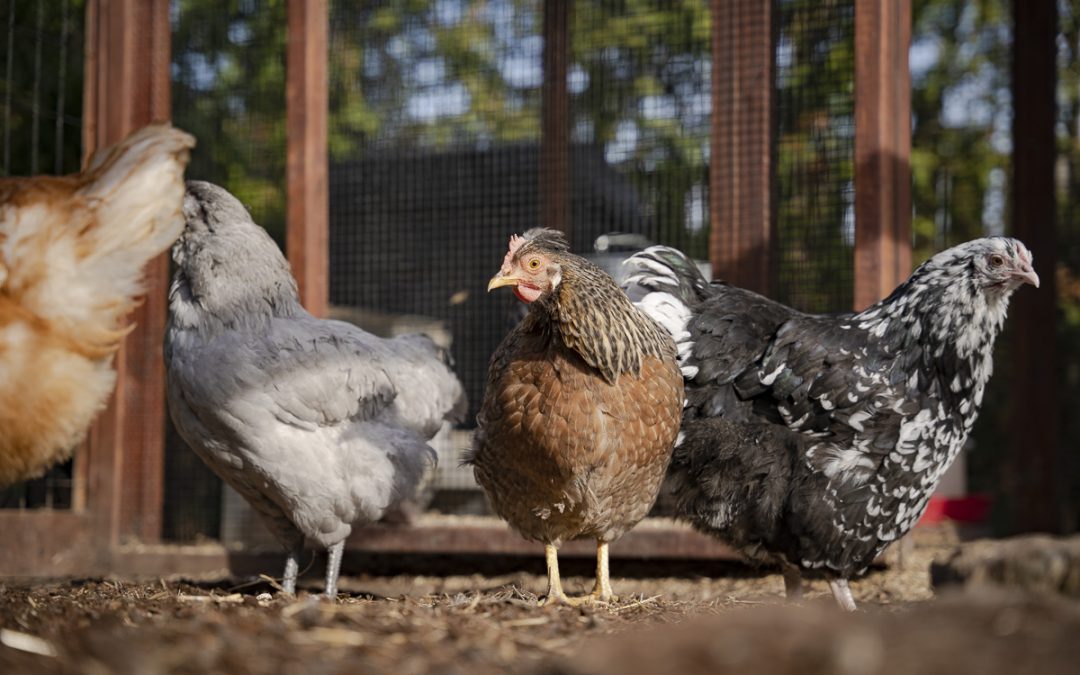I live in Toronto, Ontario, Canada. I was born here, have always lived within the 416 (the “six”), and probably always will. It’s not perfect, but it doesn’t have to be…it just has to keep trying to be better.
That’s what Toronto does best. It keeps trying to be better. The Toronto of my childhood no longer exists, and that’s ok because the Toronto of my adulthood is fantastic!
UrbanHenTO Pilot Program Launched
And it got better when on March 2, 2018, the UrbanHensTO pilot program launched.
This was after many long-running battles and petitions by Toronto citizens with the City of Toronto council.
There were more than a few city councillors, like then councillor Cesar Palacio, who made ridiculous and outrageous claims about the keeping of chickens and the detrimental effect it would have on Toronto and its citizens.
I believe he, and others who made similar statements, were hoping to get their 15 minutes of fame through their sensational soundbites. It worked…media picked up their nonsense remarks and broadcast them far and wide.
But, Toronto residents and supportive councillors succeeded in getting the pilot program approved and launched.
The Toronto UrbanHensTO Pilot Program for backyard chickens allows for up to four hens in Ward 5 (Etobicoke-Lakeshore), Ward 13 (Parkdale-High Park), Ward 21 (St. Paul’s), Ward 32 (Beaches-East York).
You must apply to get a permit to have hens, and then book a city inspector to visit your property to approve your proposed coop and location.
UrbanHensTO Rules and Regulations
There are many rules to follow and steps that need to be taken to be approved:
- Limit of four hens per property. Roosters are not permitted. We suggest a minimum of two hens, as they are very social creatures.
- Hens must be at least four months old when acquired because prior to four months you cannot determine whether the chick is a hen or a rooster. It also reduces the risk of people abandoning the hens when they are no longer “cute and fuzzy chicks.”
- Hens are for the purposes of enjoyment and egg production and not intended as livestock to eat. Eggs produced must be for personal consumption only. You cannot sell or give them to anyone else.
- Residents should acquire a veterinarian who is knowledgeable about hens prior to purchasing them so that they have a contact in case of illness.
- Requirements are based on zoning in your area of the city.
- Coop must be no more than 2 m (six feet, six inches) high and a maximum of 9.2 m2 (100 square feet) floor area.
- Coop must provide each hen with at least 0.37m2 (4 sq ft) of coop floor area, and at least 0.92m2 (10 sq ft) of roofed outdoor enclosure.
- Coop must include:
- perch for each hen that is at least 20 cm (8 in) long
- nest box(es) of a size that is suitable for the number of hens
- Coop must have a roof and doors that will be locked at night.
- Must be in your backyard and we suggest at least one metre from any property line.
- Recommended to be a minimum of three metres away from all windows and doors of a neighbour’s house.
- You must allow City staff to attend and inspect the property (as deemed necessary) to ensure compliance with the requirements.
- You are accountable for the health and welfare of your hens.
- Failure to provide them with humane care could be considered an act of cruelty and could result in fines and/or charges.
- Hens must remain on the owner’s property.
- Residents must provide a weather-proofed and insulated enclosure with an air temperature suitable for the health of the hens.
- Coop should be cleaned regularly and manure composted or disposed of in the green bin.
- Any dead hen must be disposed of immediately at a livestock disposal facility, through a veterinarian or at an animal shelter.
There are plenty more terms and conditions that can be read here.
We’re Halfway Through the UrbanHensTO Pilot Program
March 2020 marked the halfway point for the program. I contacted the head of the program and asked how many families were enrolled.
Despite the huge outpouring of support and enthusiasm for the creation of the program, only 60 families enrolled.
Councillors will undoubtedly look at these stats and conclude that there just isn’t enough interest in the program. That Toronto citizens were more interested in the idea of backyard chickens than the actual practice.
I look at these statistics and conclude that the regulations are much too complicated for the average homeowner to take on.
I know for a fact that the low enrolment is NOT due to low interest in backyard chickens. How do I know this?
I know this because I purchase my chicken feed at my local, Toronto, Home Hardware.
This location has sold chicken feed for many decades now, and often the egg layer feed I need is out of stock. And it’s not just those 60 families and their 240 hens that are wiping shelves clean on a regular bases.
There are several other small businesses throughout Toronto that have and still sell chicken feed and accessories.
Where there’s demand, there’s supply.
Does this mean that many Toronto residents have illegal chickens in their backyards?
Absolutely! And good for them!
For the Toronto UrbanHensTO Pilot Program to launch a hen pilot program to appease those that wanted them, but to make the getting and keeping of the hens incredibly complicated and difficult, was as effective as not allowing them at all.
Only those who truly are afraid of breaking by-laws, or who know they would be reported immediately, are the ones who are willing to jump through the many hoops necessary to get their backyard flock.
Everyone else just keeps doing what they’re doing. The truth of the matter is that a resident’s ability to have backyard hens will only be hampered by their neighbours. By-law officers do not conduct surprise visits. They respond to complaints.
If you’re neighbours complain, you will be caught. You will be warned and fined. You will have to rehome your hens and destroy or sell your coop.
If your neighbours are supportive, or you know they will not call the city on you, then have at it. Be respectful of your neighbours, be reasonable in your coop build and amount of hens, but if you’re willing to take on the risk, then have at it.
Am I suggesting anyone break the law? No. I’m simply explaining the process by which you will or will not be caught if you have illegal backyard hens. The choice, risk, and consequences are yours and yours alone.
As for me, I had hens long before the Toronto UrbanHensTO Pilot Program came into effect, and I’ll have them long after.
Because, in my opinion, a little civil disobedience is sometimes necessary effect great change.


